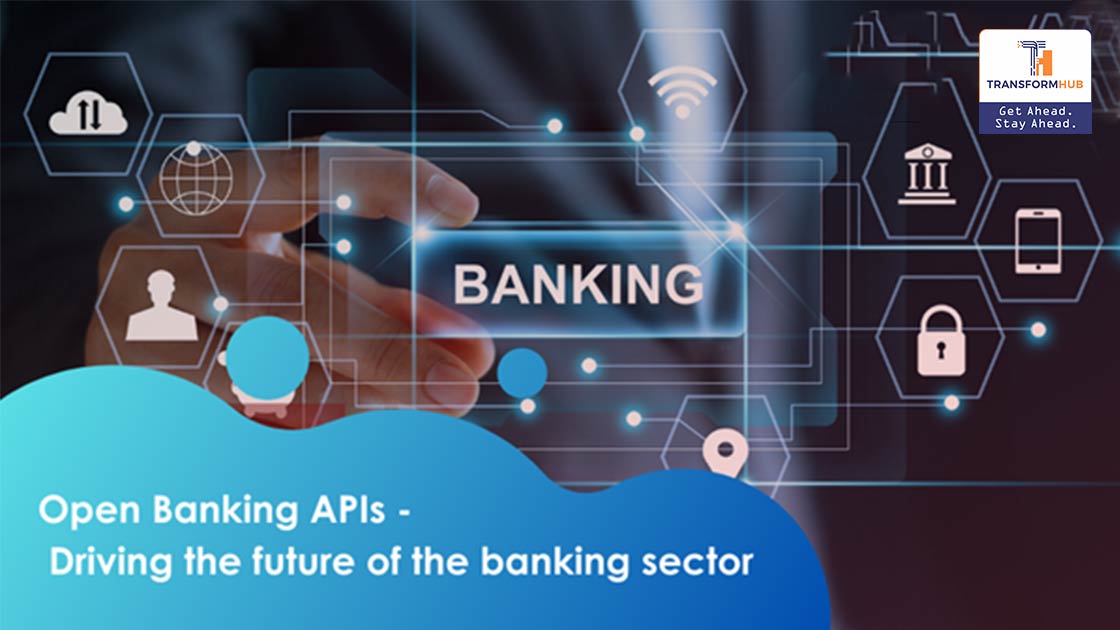Revolutionizing eCommerce Using Blockchain Technology
The most recent technological hype centers on blockchain, which has the potential to completely transform the e-commerce sector.
Blockchain's ability to solve e-commerce problems is undeniable, from the removal of middlemen to simplified operations and decreased complexity.
eCommerce is a digital industry that facilitates several transactions per second.
A lot of data needs to be saved and maintained, whether the consumer is placing an order, perusing the product, creating a profile, or making an online payment.
We have seen several instances of data breaches since there isn't a safe and reliable platform to store this important data.
In order to keep all of this information about transactions and customers without running the danger of a data breach, blockchain emerges as the ideal platform option that offers various digital transformation solutions.
Each block of the blockchain contains a complete piece of information.
It is almost hard for a single entity to modify any of these blocks. Any change to the blockchain's basic operating theory might take hundreds of years or possibly longer.
eCommerce Use Cases for Blockchain
Let's look at some examples of how blockchain is being used in eCommerce and how that is changing the sector:
1. Peer-to-peer transactions
The financial transaction is a crucial step in the online purchasing process.
The majority of transactions are currently conducted through banks, who operate as a middleman.
Here, the skills of this middleman are wholly what determine transaction speed. Similar to how the middleman determines the security of payments, transaction speed, return of payments, and many other elements.
Blockchain therefore replaces the traditional method of smart contracts in e-commerce payment.
Blockchain makes payments more decentralized, eliminating the need for a middleman to oversee your financial transactions.
Similar to that, there is no middleman involved in the transmission of your payment from your side to the seller.
Therefore, your transactions are better handled, quicker, and more secure. We may thank technology for the transparency and dependability of our financial transactions.
2. Offerings for personalized products
In this cutthroat market, building a loyal client base requires offering them a personalized experience.
However, retailers require vital details about their clients, such as their shopping preferences, wants, and behaviors.
The use of blockchain in eCommerce enables the secure ledger to store these kinds of important consumer insights and other data.
Customers have the advantage since they are in total control of their data and can pick and choose which businesses, they wish to share it with.
Users may therefore share their information without hesitation because it is very safe on the blockchain.
Additionally, businesses may utilize this information to provide clients with targeted offers and savings coupons.
3. Authentic product data
Customers seek trustworthy information about products before making purchases since product information is one of the determining criteria.
Millions of shoppers on the internet marketplace turn to the product description in this case to learn more about the item.
The buyer purchases the product if the product description fulfills the demand, and vice versa.
The product description is much more trustworthy for buyers thanks to blockchain.
Due to the concept, information is more trustworthy, and clients may check the necessary certificates to confirm the product's quality and authenticity.
The online purchase of jewelry, premium goods, branded and designer clothing, and other expensive items has unquestionably become more secure for customers because of this key capability of blockchain.
4. Validated client reviews
The most reliable source for information about a product's current quality is customer reviews.
Customers' reviews are used by users to guide their purchasing decisions.
However, the competitive environment hasn't left this issue unaffected, so even reviews these days are rarely trustworthy.
While some business owners write unfavorable evaluations of their rivals' products, others produce phony reviews.
Therefore, blockchain offers the capability to both validate product reviews and change the reasoning behind their creation and publication.
Thus, a more trustworthy, real, and dependable new industry standard for the review idea is formed.
5. Supply chain management optimization
Depending on the size of the company, the kind of products, the countries and continents where activities are located, as well as other criteria, the supply chain in eCommerce is extensive and complicated.
As a result, it has been difficult to keep the supply chain management process transparent.
Blockchain provides a great deal of relief in this situation.
The blockchain's inherent properties ensure that any information entered cannot be changed in the future.
When kept on this digital ledger, the records of inventory, sales, and orders cannot be altered or destroyed.
With blockchain, data tracking is even more accurate.
It is simple to track down any information, including who created the goods, who bought them, where they were stored, who handled the order, and how payment was received.
As a result, the entire supply chain improves in transparency, integration, and fraud-free status.
Features of Blockchain-Powered Ecommerce Platform
Despite the good effects that blockchain has had on the world economy, things haven't been great for e-commerce, which has faced several difficulties since it first began.
The industry has been searching for a reliable technical foundation for a long time, and blockchain will finally provide it.
Numerous organizations are already seeking digital transformation services in Singapore and other areas due to the advantages of blockchain-based ecommerce systems.
1. Operating effectiveness
The decentralized nature of blockchain technology can streamline processes and increase productivity.
As a result of the technology's ability to integrate with different management systems, processes involving intermediaries like logistics and payment processing partners may be regulated and streamlined.
2. Transparency
Blockchain also has the important benefit of bringing the necessary amount of transaction transparency, which promotes confidence, to e-commerce.
Every transaction is documented in a common ledger, making it impossible to change.
This level of extreme security and visibility speeds up transaction processing and assures complete traceability.
3. Cost-effectiveness
Bitcoins and a variety of other cryptocurrencies powered by the blockchain provide e-commerce businesses affordable digital payment options.
Blockchain minimizes transaction and processing expenses by cutting out middlemen and intermediates from the payment process, enabling merchants to become cost-effective.
4. Data protection
Blockchain offers a degree of security that merchants simply cannot do without, given that a single data breach may cost an e-commerce company millions of dollars in lost sales and much more in damaged brand reputation.
The distributed ledger technology (DLT) that underpins blockchain provides the highest level of security currently accessible for online database applications.
Applications of Blockchain in Online Commerce
The ways in which sellers may work and service their consumers — and their financial line — will proliferate as the online sales sector continues to both embrace distributed blockchain technology and profit from it.
Several uses of blockchain technology in e-commerce are listed below:
1. Inventory management
Inventory control is one area where the adoption of blockchain technology may be quite advantageous.
For instance, by implementing blockchain into inventory control, businesses may purchase replacement stock when predetermined criteria are achieved in addition to reducing inventory as with certain conventional shopping carts.
This guarantees that the online business never runs out of stock while also preventing the accumulation of surplus inventory.
2. Digital ownership
The countless high-quality images, videos, product evaluations, and other pieces of content that are essential to any e-commerce website are often produced at a considerable expense to the business owner, but the e-commerce platform is the rightful owner.
With blockchain, however, merchants can fully own all digital assets, such as online stores, product images and videos, and customer feedback.
This ownership will be entirely transparently tracked on the blockchain.
3. Programs that reward loyalty
Customers may be eligible for customized offers and loyalty reward schemes thanks to blockchain technology.
Customized promotions and loyalty reward programs may be fully automated within the blockchain by securely storing purchase history and preferences.
Since every transaction is recorded in the chain, it is simple to create a smart contract to give clients a discount or reward points when they spend more than a predetermined amount.
4. Identity control
The digital traces that are left behind as more and more individuals use internet platforms for business are staggering.
Customers' personal or financial information is kept on a number of internet databases that are susceptible to security problems every time they enter it on an e-commerce website for payment purposes.
Blockchain can assist businesses create reliable authentication processes and encrypted online identities for better identity management by preventing identity theft and misuse.
5. Supply chain monitoring
Every e-commerce site relies on the consistency of its supply chain to function; a consistent supply chain process informs the shop operator of the status of the current inventory, the arrival date of new stock, and ensures that suppliers are delivering the precise goods required.
E-commerce enterprises may verify that vendors adhere to agreed-upon standards and do not substitute items without notice by utilizing blockchain to trace the supply chain.
This maintains transparency throughout the process.
6. Warranty administration
Consumers and retailers sometimes feel frustrated because they can't demonstrate warranty coverage since they've misplaced their paper receipts.
Manufacturers, merchants, and consumers will all have access to the data, making warranty information readily retrieved and verified merchants may easily and effectively maintain warranty information using blockchain.
7. Improved operations
The potential of blockchain is enormous, and as more and more sectors adopt the technology, its influence will only increase rapidly.
The emergence of blockchain has already begun to alter the e-commerce sector, and in the next few years, it will radically change the environment of online buying.
By removing intermediaries and streamlining the process, the technology will enable customers to interact directly with shops.
How Can We Help?
TransformHub, one of the top digital transformation companies in Singapore, provides blockchain-powered eCommerce solutions.
Therefore, TransformHub offers everything for you under one roof, whether it's an online commerce landscape you're keen to explore or the integration of blockchain technology in your current ecommerce presence to obtain competitive advantages.
Our competent and knowledgeable crew can help you outfit cutting-edge technology for your company and get an advantage over competitors in the market.
We have experience developing blockchain applications and the know-how to create them quite effectively.
Share this
You May Also Like
These Related Stories

Ethical AI in Finance: Balancing Innovation with Customer Trust

Explainable AI in Banking: Boosting Customer Trust in AI Decisions




